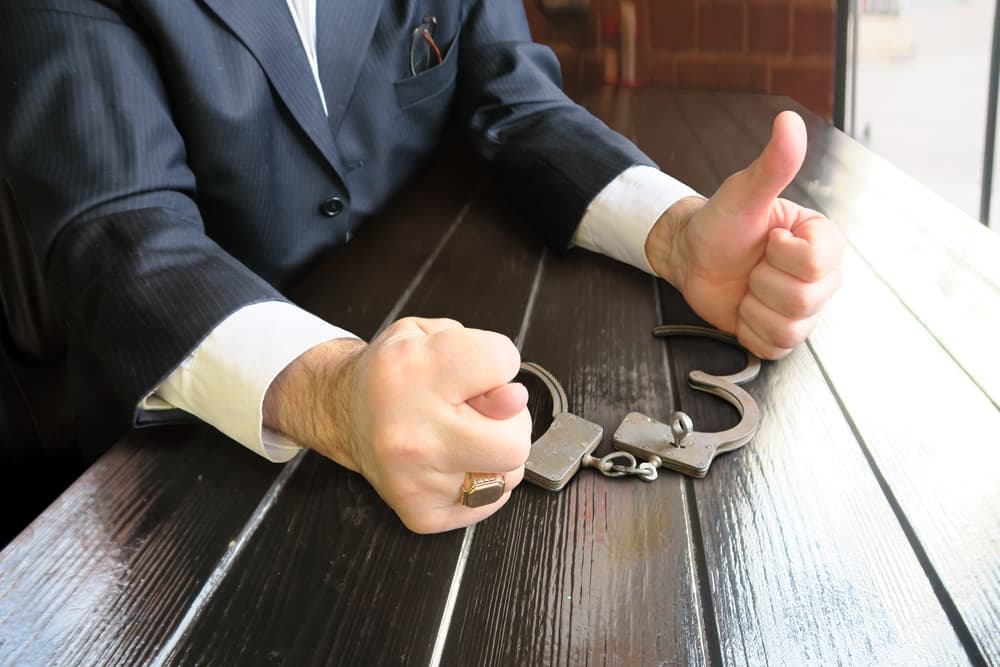Getting arrested for driving under the influence (DUI) is always a serious matter, but the stakes increase when it’s your third offense.
Most states make a third DUI within a certain timeframe a felony that carries mandatory jail time. However, the right legal strategy can avoid or minimize time behind bars. You must consult an experienced DUI defense attorney immediately to begin working on your defense.
Understanding Third Offense DUI Penalties
Every state has laws for DUI penalties, but the consequences become more severe with each repeat offense. A first-time DUI is usually a misdemeanor that may result in fines, license suspension, and possibly a short jail sentence. A second DUI often comes with increased fines and longer license suspension or jail time.
But once you get to a third DUI, you’re usually looking at a felony charge. Depending on the state, a third DUI can mean several months to a year or more in jail.
You may also face fines up to $10,000, years of license suspension, mandatory installation of an ignition interlock device in your vehicle, DUI education or substance abuse treatment, and a permanent criminal record as a convicted felon.
The consequences of a third DUI conviction are life-changing. Spending months in jail can cause you to lose your job, housing, and time with your family.
A felony on your record can make finding employment, housing, and education opportunities difficult even after you served your sentence. Fines, fees, and other costs can add to the financial burden.
This is why you must hire an experienced DUI defense attorney if you face a third drunk driving charge. A skilled lawyer can prevent a conviction and keep you out of jail.
Potential DUI Defenses
The key to avoiding jail time for a Third DUI is to fight the charge and get a not guilty verdict or convince the prosecutor to agree to reduced charges. Every case is unique, but some common defense strategies include:
Challenging Probable Cause for the Traffic Stop
One potential defense strategy in a DUI case is to challenge the legality of the initial traffic stop. The police officer must have probable cause – a reasonable suspicion that you violated a traffic law or engaged in criminal activity – for a valid traffic stop.
Examples of legitimate reasons for a stop can include:
- Speeding
- Running a red light
- Swerving between lanes
- Having a broken taillight
However, if the officer pulled you over without a valid reason, the court may refuse to admit any evidence gathered from that stop. This can include field sobriety tests, Breathalyzer results, and the officer’s observations of your behavior and appearance. Your lawyer will file a motion to suppress this evidence, arguing that the officer violated your Fourth Amendment rights against unreasonable search and seizure.
If the judge agrees that the officer lacked probable cause, they will throw out all the evidence from the stop. Prosecutors may have no choice but to drop the charges if their case relied heavily on that challenged evidence.
This is why you need a DUI attorney to carefully examine the police report and question the officer’s stated justification for pulling you over.
Challenging Field Sobriety Test Results
Another approach your lawyer may take is challenging the results of any field sobriety tests (FSTs) you performed during the DUI stop. Officers often use standardized FSTs like horizontal gaze nystagmus (eye movement), walk-and-turn, and one-leg stand tests to determine if a driver is impaired. However, these tests do not definitively prove someone is under the influence.
Many factors unrelated to alcohol can impact a person’s performance on FSTs. Certain medical conditions, such as inner ear disorders, back or leg problems, and eye issues, can affect balance, coordination, and vision.
Older individuals may have difficulty completing the physical tasks. Uneven pavement, debris on the roadside, poor weather, improper footwear, and officer instructions can also influence test results.
Your attorney may bring medical professionals to testify about how a health issue impacted your FST performance. They may cross-examine the officer regarding how they administered the tests and whether they provided clear instructions. Footage from dashcams or bodycams may reveal officers’ mishandling of the tests. If your lawyer can raise doubts about the reliability of the FST results, they can exclude them as evidence.
Challenging Breath or Blood Test Results
In most DUI cases, the key piece of evidence is the result of a chemical test, usually a Breathalyzer or blood draw, showing your blood alcohol concentration (BAC) was over the legal limit of 0.08 percent.
Your lawyer may look for problems in how these tests were conducted or handled to challenge the results and keep them out of court.
As the law requires, your attorney may investigate whether the machine was properly calibrated and maintained for Breathalyzer tests. They may also verify that the officer who administered the test was trained and certified. If there were issues with the device or operator, your lawyer can argue the results are unreliable.
If you had your blood drawn for testing, the sample has to follow a precise chain of custody with documentation every time it changes hands. If your attorney discovers the blood was mishandled, stored improperly, or has missing paperwork, they may raise chain of custody issues.
Blood samples can also ferment over time, causing inaccurately high BAC readings. Your lawyer might have the sample independently tested for fermentation or contamination.
These challenges to BAC evidence are very technical and depend heavily on the facts of the case. It takes a DUI attorney with a thorough understanding of the testing procedures and science to spot potential problems and make persuasive arguments to keep the evidence out.
Presenting Evidence of Rising Blood Alcohol
Another possible defense has to do with the timing of the chemical BAC test. Alcohol doesn’t absorb into the bloodstream instantly – it takes time after your last drink for your BAC to reach its peak.
So it’s possible that your BAC was still under the legal limit while you were driving but continued to rise in the time between getting pulled over and getting tested later.
This is known as the “rising blood alcohol defense.” It argues that the chemical test result doesn’t reflect your driving impairment level. To make this case, your lawyer will need evidence showing when you last drank, how much time passed before the traffic stop, and the additional time before you underwent testing.
A toxicologist’s professional testimony may demonstrate how your specific drinking timeline will result in your BAC still rising after you stop driving. Your attorney might also point to the officer’s observations of you during the traffic stop, such as a lack of visible impairment, to support the idea that you weren’t over the limit behind the wheel.
The rising blood alcohol defense admits to drinking before driving. But if the chemical test is the prosecution’s strongest evidence, and your attorney can raise reasonable doubts about whether you were legally impaired while driving, this strategy may work.
Negotiating a Plea Bargain

If the prosecutor collected strong evidence against you, your lawyer may advise against fighting the DUI charge at trial. This is often the case if there is clear video footage, reliable chemical test results, or witness testimony that will be very difficult to challenge in court. With a high risk of a jury conviction, your lawyer may advise you to negotiate a plea bargain.
A plea bargain is an agreement between the defense and prosecution where you plead guilty or “no contest” to a lesser charge in exchange for reduced penalties.
In a DUI case, your attorney may try to negotiate the charge down from a felony to a misdemeanor or from a DUI to a “wet reckless” (reckless driving involving alcohol). These reduced charges come with lighter sentences and lower fines, potentially helping you evade some of the worst consequences of a DUI felony conviction.
Plea bargains are not available in every case. The terms depend on factors like the severity of the offense, your criminal history, and how strong the evidence is against you. Prosecutors may be unwilling to negotiate if an accident, injury, or other aggravating factors are involved.
But if your attorney can highlight weaknesses in the case and frame you in a sympathetic light, they can achieve a favorable deal.
Of course, it’s always your choice to accept a plea bargain or take your case to trial. Your lawyer can advise you on the risks and benefits, but only you can decide if admitting guilt in exchange for lesser penalties is right.
It’s a highly personal decision that requires carefully weighing the strength of the evidence, the potential sentences, and the collateral impact on your life.
Every case is different, and not all of these defenses will apply. It takes a knowledgeable DUI attorney to review the specific details of your case and determine the best approach.
Alternative Sentencing Options
Even if you receive a conviction for a third DUI, your lawyer can advocate for alternatives to jail that permit you to remain in the community while still being held accountable for your actions.
Depending on the state and the details of your case, a judge may consider options like:
- House arrest or electronic monitoring: Letting you serve your jail sentence at home while wearing an ankle monitor bracelet. There will likely be restrictions on your movements and requirements for regular check-ins.
- Work release: Permitting you to go to work during the day and return to jail in the evening and on weekends. This can allow you to keep your employment and continue supporting your family.
- Residential rehabilitation: Requiring you to complete an inpatient substance abuse treatment program instead of jail time. Getting treatment can help address the root causes of drunk driving and potentially shorten your sentence.
- Intensive probation: Placing you under strict supervision with requirements like regular check-ins, abstaining from alcohol, attending support group meetings or counseling, community service, and more – with the threat of jail if you don’t comply.
These arrangements are not automatically granted and may not be available in all jurisdictions. Your DUI lawyer will need to make the case to the prosecutor and judge that you are a good candidate deserving of an alternative to incarceration.
Authorities will likely consider factors such as your personal history, past criminal record, family and community ties, employment status, and willingness to undergo substance abuse treatment.
Again, a lot depends on the specific circumstances of your case and the approach your attorney takes in court. The most important thing you can do is be upfront with your lawyer about your situation so they can build the strongest possible defense and arguments on your behalf.
Additionally, staying informed about the progress of your case and actively participating in your defense strategy can greatly benefit your legal outcome.
Find an Experienced DUI Defense Attorney
If you’re facing a third DUI charge, the most important step is to contact a skilled DUI defense lawyer right away – even if you think the evidence against you is overwhelming.
An attorney can safeguard your rights, scrutinize all the facts, and identify weaknesses in the prosecution’s case that can prevent you from serving jail time.
Look for a lawyer who has specific experience handling felony DUI cases and knows the DUI laws and court system in your area.
Many law firms offer free consultations so you can get an initial evaluation of your case and learn more about your options without obligation. The sooner you get legal representation, the better your chances of a favorable outcome.
A third DUI may feel like an impossible situation. However, with an aggressive legal defense, you may have a fighting chance of staying out of jail and minimizing the impact on your life. The key is to act quickly and not face this serious charge alone.

